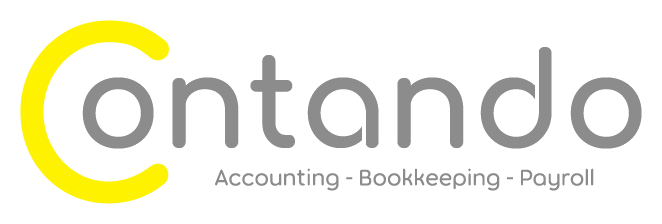Trivial benefits
Did you know that you don’t have to pay tax on a benefit for your employee if it costs you £50 or less (including VAT) to provide, it isn’t cash or a cash voucher, it isn’t a reward for their work or performance and it isn’t in the terms of their contract.
This is known as a ‘trivial benefit’. You don’t need to pay tax or National Insurance or let HM Revenue and Customs (HMRC) know.
If the benefit is provided to a group of employees and it’s not practical to work out the exact cost per person you can use the average cost per employee.
Typically, trivial benefits include benefits provided solely for staff welfare purposes such as a bunch of flowers on the birth of a child or a bereavement. Benefits provided in recognition of services provided such as long service awards and social events as a team-building event or as a thank-you for good results in the year will not qualify as trivial benefits.

The gift can’t be a reward for work or performance and can’t be in their contract. This means that if you give an employee a bottle of bubbly as a reward for hitting their monthly targets you can’t treat this as a trivial benefit. But if you buy them a bottle of bubbly for christmas, or simply because it’s a beautiful day and you’re in a good mood, you can treat it as a tax free trivial benefit.
So next time you are sending a bunch of flowers to say congratulations on the new baby or sending a gift voucher for someone’s milestone birthday keep it below £50 to keep everyone’s tax situation simple.
As a company director can I pay myself trivial benefits?
Yes you can. But there are limits.
Directors of “close” companies can’t receive trivial benefits worth more than £300 in a tax year.
A “close” company is a limited company with five or fewer participators (shareholders) who are all directors.
As a company director, where a trivial benefit is provided to a member of your family or household, then the cost of the trivial benefit counts towards your £300. If the member of your family or household is an employee or director of the same company, they will be taxed (or not) on the benefit in their own right and so gifts to them won’t count towards your £300 cap.
Members of your family or household who are employees of the same close company are also each subject to their own annual cap of £300.
Combine this with the working from home payments of £26 each month and that’s effectively £51 each month that you as a director can take out of the business tax free.
HMRC give some useful examples:
Example A
Employer A takes a group of employees out for a meal to celebrate a number of birthdays. Five employees attend the meal at a total cost to employer A of £240. Individual employees make different menu and drink selections. Rather than undertake a detailed analysis of the bill you should accept that the cost per head is £48, reflecting an average amount of £240/5. The benefit of the meal can be covered by the exemption since the cost for each individual does not exceed the trivial benefit financial limit.
Example B
Employer B provides each of its 100 employees with a turkey at Christmas and the total bill comes to £4,500. There are a variety of sizes. Because the employer has made a bulk order, the turkeys have not been priced up individually but would cost in the region of £40 to £60 each. Employees are able to choose which bird they have. Rather than undertake a detailed analysis of the individual benefits, you should accept that the cost per head is £45, reflecting an average amount of £4,500/100. The benefit can be covered by the exemption since the cost for each employee does not exceed the trivial benefit financial limit.
Example C
Employer C provides each member of its 25 strong work-force with a bottle of wine at Christmas. The total bill comes to £1,000. This reflects 20 bottles of wine that cost £15 per bottle provided to each of its employees and 5 bottles of wine provided to each of its directors that cost £140 per bottle. In this case it is not impracticable to determine the cost of the individual benefit and the actual cost per item should be applied in determining whether the monetary limit has been exceeded for each employee and director. The benefit of the £15 bottles of wine can be covered by the exemption since the cost does not exceed the trivial benefit financial limit but not the benefit of the £140 bottles of wine provided to the directors.
Example D
Employer D provides each of its employees with a bottle of wine costing £25 at Christmas. However, as an alternative, it provides employees who do not drink alcohol with a £25 gift voucher for a national supermarket chain which they can exchange for an alternative non-alcoholic Christmas gift. Both the bottle of wine and the non-cash gift voucher can be covered by the exemption.
Cash and cash vouchers should not be treated as exempt from tax as trivial benefits, regardless of how small the cost.
Example E
Employer E requires its employees to work through their lunch hour and provides them with lunch. The meal has been provided because of the work they are undertaking. The benefit does not satisfy the requirement that it is not provided in recognition of particular services performed by the employee and so the exemption does not apply.
Example F
Employer F runs a call centre and gives £25 gift vouchers to employees who hit specific performance targets each week. The gift vouchers are provided in recognition of the services provided and so the exemption cannot apply.
Example G
Employer G provides all of its staff with a Christmas gift to the value of £30 each year. The employees receive the gift each year regardless of their performance during the year. The gifts are not provided in recognition of the employees’ services and are merely a gesture of goodwill at Christmas. Subject to the other qualifying conditions being satisfied, the exemption can apply.
Example H
Employees of employer H have to work late from time to time and on those occasions their employer provides them with a taxi to take them home. The taxi is provided because they have worked late and so the exemption does not apply. However, the late night taxi exemption may apply
Company director examples:
Example I
Company I provides a director with 3 benefits that cost £30, £40 and £50 respectively in a single tax year. The total cost of the benefits is £120. The total cost does not exceed the annual exempt amount of £300 and all of the benefits can be covered by the exemption.
Example J
Company J provides a director with 7 benefits that each cost £50 each during the tax year. The total cost is £350 which exceeds the annual exempt amount. The last benefit is not exempt from tax.
Example K
Company K provides a director with 8 benefits in the tax year. The first 5 benefits during the tax year cost £50 each. In date order, the next cost £40, £45 and £10 respectively. The total cost of the first 6 benefits is £290 which is less than the annual exempt amount so they are all exempt. The £45 benefit brings the total cost to £335 which exceeds the annual exempt amount.
Therefore, the £45 benefit is not exempt, but is not counted towards the annual exempt amount.
The £10 benefit brings the total cost to £300 which does not exceed the annual exempt amount so it is also exempt.
Example L
Company L provides a director and the director’s daughter with a turkey each at Christmas. Each turkey costs £30. The daughter is not an employee or office holder of company L. The total cost of £60 counts towards the director’s annual exempt amount.
Example M
Company M provides one of its directors with a bottle of wine on her birthday. It also provides a bottle of wine to the director’s husband who is an employee of company M. Each bottle of wine cost £20. The £20 cost of each bottle counts towards the director’s and the employee’s personal annual exempt amounts.
Example N
Company N provides gift tokens costing £30 each to two of its directors, who are husband and wife, and to their son on their birthdays. The son is not an employee or office holder of company N and so the cost of his gift token is apportioned between the directors on an equal basis. £45 is allocated against each of their annual exempt amounts. This reflects the cost of the gift token they were provided with personally and half of the cost of the gift token provided to their son.
